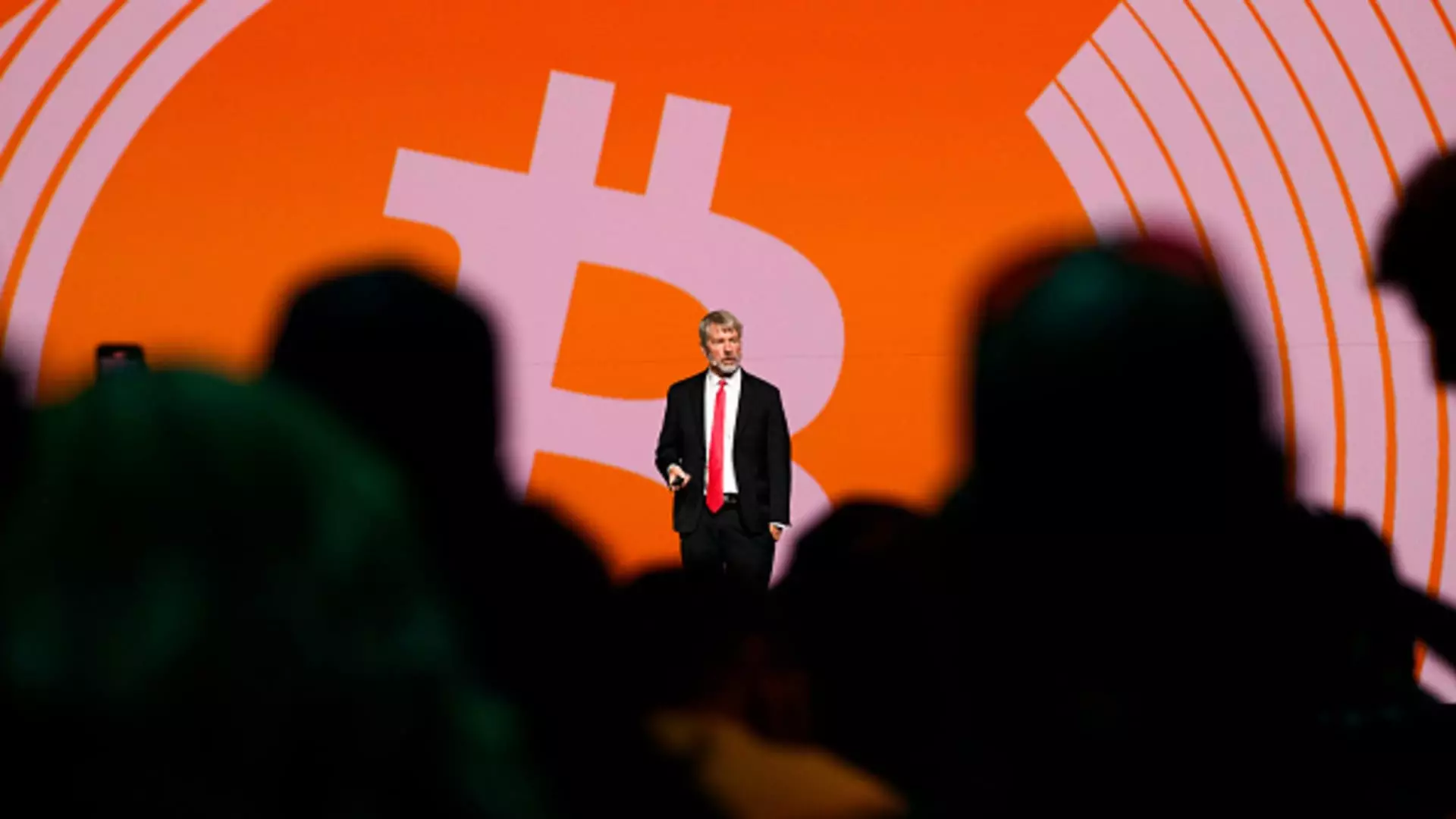The landscape of corporate finance is undergoing a seismic shift as Bitcoin evolves from a niche investment into a cornerstone of financial strategy. Recent developments, particularly involving major firms like Trump Media and GameStop, indicate that the corporate world can no longer afford to overlook this digital asset. Even with the market’s hesitance—a response characterized by significant stock drops for firms announcing Bitcoin allocations—the underlying sentiment appears to mirror an evolving consensus: Bitcoin is here to stay and is destined for broader adoption. The dissociation between price dynamics and long-term value propositions in this scenario underscores a burgeoning corporate consciousness that sees Bitcoin not merely as an investment but as an integral asset for future stability.
Contrasting the overreactions to recent announcements, many financial advisors and corporate leaders are rallying around Bitcoin as a hedge against inflation and economic decline. While companies like Strategy, under Michael Saylor’s helm, continue to exemplify the far-reaching potential of Bitcoin on balance sheets, corporations trying to follow suit must navigate a complex financial environment fraught with investor skepticism. This skepticism is not unwarranted; it stems from historical volatility in both Bitcoin and in those companies’ core business strategies, illustrating that corporate governance still has a long way to go before fully embracing this formidable digital currency.
Shaping National Policy: Bitcoin’s Entry into Geo-Finance
The political landscape shapes market behavior, and President Donald Trump’s administration has notably pivoted to adopt a more favorable stance toward Bitcoin. The establishment of a U.S. Strategic Bitcoin Reserve marks a ground-breaking shift wherein federal agencies are instructed to view Bitcoin as a long-term asset rather than a speculative one. Empowering the government to accumulate Bitcoin using assets seized in criminal cases further underlines a commitment to integrate it into national policy, redefining Bitcoin as a sovereign asset.
This blending of national interest and corporate finance exposes a new dichotomy in how Bitcoin is perceived. On one hand, it emerges as a hedge against inflation, a sentiment echoed by the recently vocal Vice President JD Vance. On the other, skeptics might question the implications of intertwining state power with a decentralized currency, raising valid concerns about the future of Bitcoin’s libertarian ideals. As institutional adoption solidifies, the challenge remains: how to maintain Bitcoin’s fundamental ethos while navigating it through the complexities of government oversight and regulation.
Market Paradox: Short-term Reactions Versus Long-term Potential
Critics of Bitcoin’s corporate embrace often cite the market’s immediate reactions to announcements—like the drop in Trump Media’s and GameStop’s stocks—as evidence that mainstream adoption may be oversold. However, these short-term fluctuations can obscure a longer-term narrative favoring Bitcoin as a robust financial asset. Saylor posits that traditional finance’s knee-jerk responses to Bitcoin might simply reflect structural finance dynamics rather than genuine pessimism about its value.
It’s crucial to understand that the timing of investments can often mislead; speculation tends to dominate when firms announce lofty plans without a substantive track record. The initial surge in GameStop after hinting at a Bitcoin strategy illustrates that while market enthusiasm can be triggered, it can just as easily deflate unless supported by sustainable models. Entities like Strategy, which have already seen monumental gains from Bitcoin investments, serve as exemplars that convincingly endorse the long-term value proposition—albeit also highlighting the risk of overexposure in volatile markets.
Embracing Reluctance: The Resistance to Bitcoin within Corporations
Despite the fervor surrounding Bitcoin’s rise in corporate finance, significant portions of the tech sector remain hesitant. Microsoft’s rejection of a proposal to leverage part of its cash reserves for Bitcoin investment showcases a reluctance that might stem from a desire for perceived stability in a rocky economic climate. This resistance showcases a fundamental divide within corporate leadership—between those who embrace innovation as an opportunity to extend their market position and those who prioritize risk aversion.
The hesitation within such major corporations raises important questions about leadership vision in an ever-evolving financial environment. As younger, more tech-savvy investors demand transparency and progressive strategies, traditional firms must evaluate not just Bitcoin’s role, but the broader implications of remaining static in a rapidly changing market. As Saylor famously articulated, “Microsoft can’t afford to miss the next technology wave.” The moment to ride this wave is now, as the alternative seems increasingly unviable in a market embracing the unthinkable.
The emerging narrative surrounding Bitcoin reflects a juxtaposition—between daring corporate strategies and cautious investor sentiment. While immediate reactions can dampen excitement, the overarching trend suggests that Bitcoin’s relevance within the corporate sector is escalating. Corporations willing to brave this transformative journey may stand to gain not simply financially, but also in establishing themselves as thought leaders in this burgeoning era of financial innovation.

